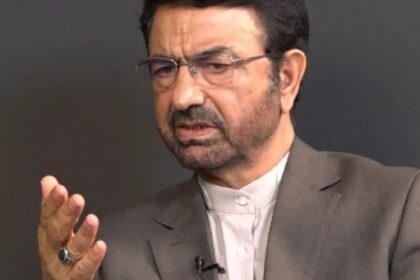RASC News Agency: A member of the Taliban’s so-called Special Forces has reportedly gunned down two civilians in broad daylight in Surobi district, Kabul province, in an incident that has triggered widespread condemnation and amplified concerns about escalating impunity within the ranks of the Taliban. According to multiple local sources, the assailant identified as Qari Izzatullah, an armed member of the Taliban’s elite unit opened fire on two local residents following a verbal altercation on Wednesday,May 14. Eyewitnesses say that the confrontation quickly turned violent when Izzatullah pulled out his weapon and shot both men at close range, killing them instantly.
The killings took place in a district tightly controlled by the Taliban, raising serious questions about the group’s inability or unwillingness to rein in its own forces and maintain even the most basic standards of security and accountability. A source within the Taliban, speaking on condition of anonymity, confirmed that Qari Izzatullah is affiliated with the group’s Special Unit. However, the Taliban leadership has so far remained silent on the incident, issuing no official statement and taking no apparent action to investigate or detain the perpetrator, who reportedly fled the scene immediately after the attack and remains at large. Some local reports speculate that personal animosity may have contributed to the violent outburst, but no official motive has been confirmed. What remains indisputable, however, is that an armed Taliban operative carried out a double murder in an area supposedly under their governance without consequence or accountability.
This latest episode underscores what human rights observers have long warned: the Taliban’s rule is characterized not by order and justice, but by arbitrary violence, unchecked power, and widespread fear. Despite branding themselves as a governing authority, the group continues to operate more like a fragmented militia than a functioning state, allowing its members to carry out acts of violence with near-total impunity. “This is more than just a local dispute turned deadly,” said a Kabul-based political analyst. “It’s symptomatic of the Taliban’s broader failure to instill discipline within its ranks or offer any semblance of justice to the Afghanistani people. Civilians are left entirely vulnerable, with no legal recourse or protection under this regime.”
The Taliban’s lack of transparency and consistent silence following violent crimes committed by its own personnel has further deepened public mistrust. In the eyes of many Afghanistanis, this regime’s repeated pattern of extrajudicial violence and its refusal to hold its members accountable signal the collapse of any legitimate governance structure. As Afghanistan remains mired in a climate of fear and repression, such incidents only reinforce the perception that the Taliban’s grip on power is sustained not through public legitimacy but through coercion and terror. International human rights organizations continue to document the regime’s widespread abuses, calling for urgent accountability mechanisms and international intervention to protect civilians.






